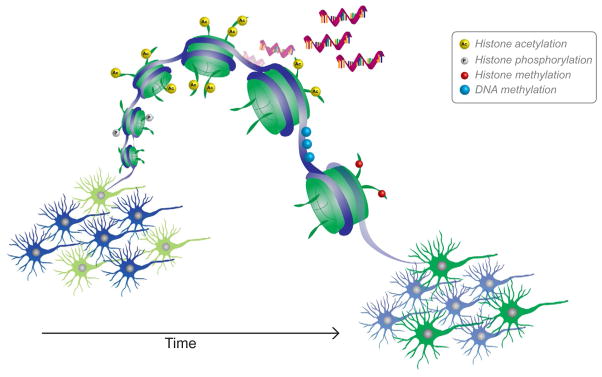FIG. 4.
Epigenetic modifications to solidify neuronal ensembles. Drug-induced neuronal activation causes rapid changes in chromatin structure. Epigenetic signatures in neurons of the reward circuit gate intracellular signaling to regulate the temporally sensitive transcription of genes involved in synaptic plasticity. Upon initial activation, transient changes in chromatin modifications, like phosphorylation and acetylation, alter transcription in the short-term. Over time, epigenetic changes become more permanent, such as DNA methylation that can alterthe ability of genes to be induced by neuronal activation. Such gene priming or desensitization can modify the ability of neurons to rapidly and efficiently respond to drug-associated cues. Thus, repeated exposure to drugs causes permanent changes in the epigenetic landscape that alter the inducibility of key genes, which solidifies which neurons will be activated and act to drive drug seeking.

